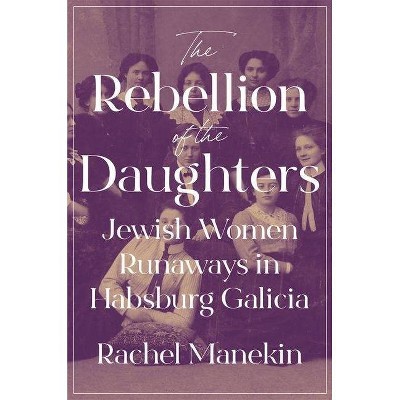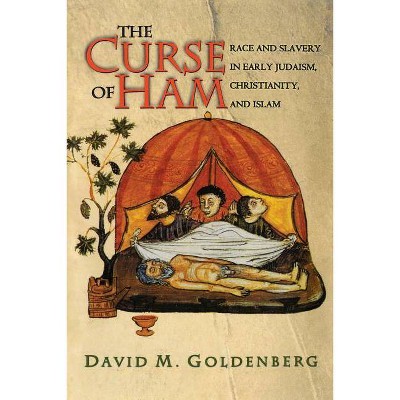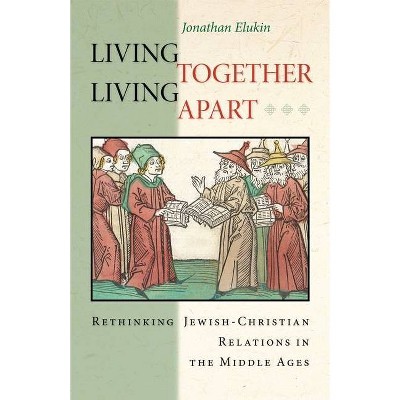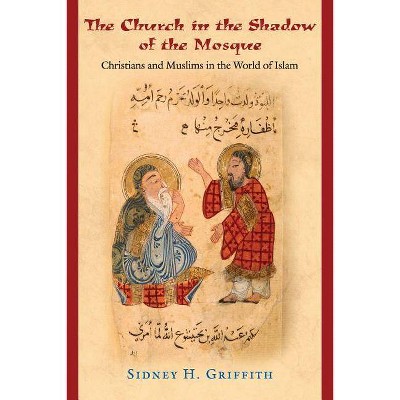The Rebellion of the Daughters - (Jews, Christians, and Muslims from the Ancient to the Modern) by Rachel Manekin (Hardcover)

Similar Products
Products of same category from the store
AllProduct info
<p/><br></br><p><b> About the Book </b></p></br></br>"In fin de siáecle Krakâow and shortly thereafter, hundreds of young orthodox Jewish women fled their homes and found refuge in the Felician Sisters convent, where many of them converted to Catholicism. The book recounts this forgotten, perhaps suppressed, episode in Eastern European Jewish history, by reconstructing the stories of three of these women. It argues that the crisis in traditional Jewish society was precipitated by the practice of sending Jewish girls to Polish public and private schools, in accordance with Habsburg law, while not providing them with any Jewish education. When it came time for them to marry, they rebelled against their orthodox parents and escaped to the convent. The book is the first study of Jewish women in Habsburg Galicia, many of them from Hasidic families. It draws on a wealth of sources: court files, police files, government correspondence, press reports, and contemporary literature, to give voice to these young women"--<p/><br></br><p><b> Book Synopsis </b></p></br></br><p><b>An in-depth exploration of the flight of young Jewish women from their Orthodox homes during the late nineteenth and early twentieth centuries</b> <p/><i>The Rebellion of the Daughters</i> investigates the flight of young Jewish women from their Orthodox, mostly Hasidic, homes in Western Galicia (now Poland) in the late nineteenth and early twentieth centuries. In extreme cases, hundreds of these women sought refuge in a Kraków convent, where many converted to Catholicism. Those who stayed home often remained Jewish in name only. <p/>Relying on a wealth of archival documents, including court testimonies, letters, diaries, and press reports, Rachel Manekin reconstructs the stories of three Jewish women runaways and reveals their struggles and innermost convictions. Unlike Orthodox Jewish boys, who attended cheders, traditional schools where only Jewish subjects were taught, Orthodox Jewish girls were sent to Polish primary schools. When the time came for them to marry, many young women rebelled against the marriages arranged by their parents, with some wishing to pursue secondary and university education. After World War I, the crisis of the rebellious daughters in Kraków spurred the introduction of formal religious education for young Orthodox Jewish women in Poland, which later developed into a worldwide educational movement. Manekin chronicles the belated Orthodox response and argues that these educational innovations not only kept Orthodox Jewish women within the fold but also foreclosed their opportunities for higher education. <p/>Exploring the estrangement of young Jewish women from traditional Judaism in Habsburg Galicia at the turn of the twentieth century, <i>The Rebellion of the Daughters</i> brings to light a forgotten yet significant episode in Eastern European history.</p><p/><br></br><p><b> Review Quotes </b></p></br></br><br>Finalist for the National Jewish Book Award in Women's Studies<br><p/><br></br><p><b> About the Author </b></p></br></br><b>Rachel Manekin</b> is associate professor of Jewish studies at the University of Maryland. She is the author of <i>The Jews of Galicia and the Austrian Constitution: The Beginning of Modern Jewish Politics.</i>
Price History
Price Archive shows prices from various stores, lets you see history and find the cheapest. There is no actual sale on the website. For all support, inquiry and suggestion messagescommunication@pricearchive.us




















